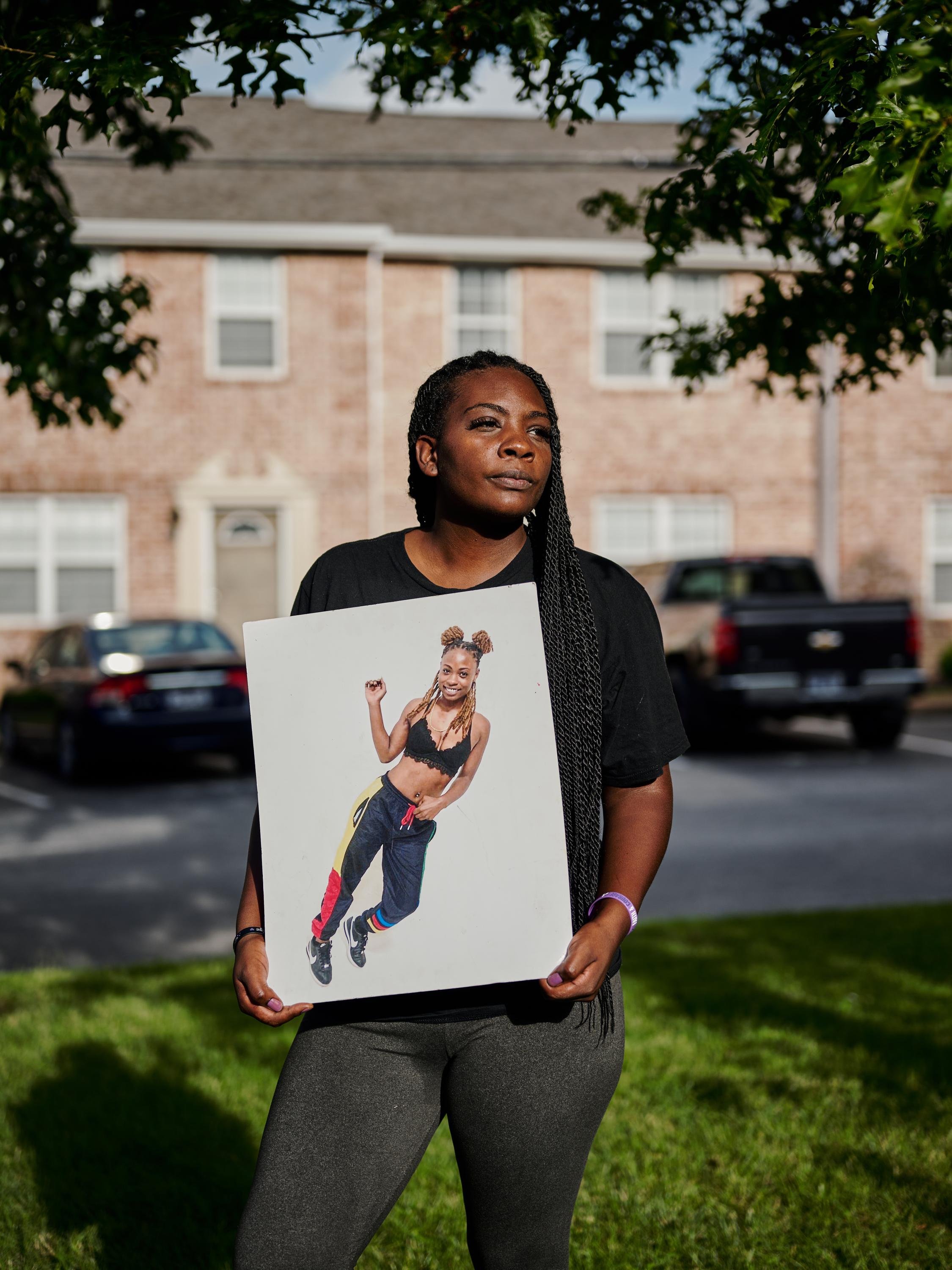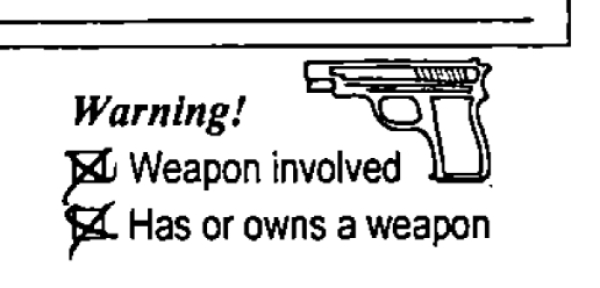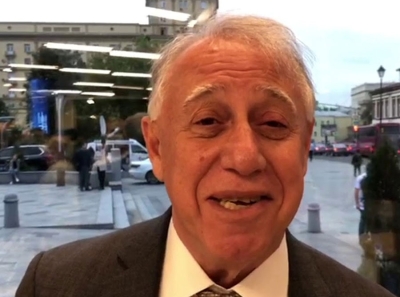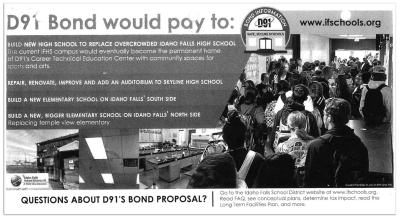Series: Under the Gun: How Gun Violence Is Impacting the Nation
As America emerged from the pandemic, communities continued to experience a rising tide of gun violence. School shootings and the rate of children and teens killed by gunfire both reached all-time highs since at least 1999. ProPublica’s coverage of gun violence reveals how first responders, policymakers and those directly affected are coping with the bloodshed.
This article was produced for ProPublica’s Local Reporting Network in partnership with WPLN/Nashville Public Radio. Sign up for Dispatches to get stories like this one as soon as they are published.
This story contains some graphic descriptions of gun violence.
The U.S. Supreme Court will hear arguments next week in a pivotal firearms case that could have profound implications for how police and courts deal with domestic violence.
The question: Should people who are placed under domestic violence protection orders also lose access to their guns?
For many victim advocates, the answer is obvious. Women are five times more likely to be killed in a domestic violence incident when the abuser has access to a gun. Advocates argue that the gun restrictions tied to such orders are among the most powerful tools for domestic violence victims and that without them, more people will die.
For gun rights groups and their most ardent supporters, that is beside the point. They contend that people subject to protection orders haven’t been convicted of a crime and that taking their firearms away violates the Second Amendment. If the government can disarm them, they ask, who could the government disarm next?
Earlier this year, the U.S. Court of Appeals for the 5th Circuit sided with gun rights supporters, invalidating a federal law passed by Congress in 1994 that bars people under domestic violence orders from having firearms.
If the Supreme Court upholds that decision and rules that gun restrictions tied to restraining orders are unconstitutional, states would have fewer options to stop domestic abusers from possessing, and using, guns. And in conservative states, the aggressive rollback of gun control laws means that it is already easier for people to get guns to begin with.
This year, WPLN and ProPublica have been reporting on the issue at the heart of the Supreme Court case: the difficulty of separating domestic abusers from their guns. The court’s ruling could have immense ramifications in Tennessee, where weak enforcement of gun laws has allowed firearms to slip through the cracks with deadly consequences. According to our reporting, nearly 40% of the victims shot in domestic violence homicides in Nashville since 2007 were killed by people legally barred from having guns.
Over the past decade, the state has also made it easier for more people to get guns and carry them in more places. And a special legislative session in August — called in the wake of the March shooting at the Covenant School, where three children and three staff members were killed — failed to yield any gun reform.
The Supreme Court’s decision could also inform rulings on other laws barring people with felonies and drug addictions from having guns as well as red flag laws designed to prevent shootings by temporarily removing guns from people who’ve shown signs they might hurt themselves or others.
Such laws were central to this summer’s legislative session in Tennessee and have gained renewed attention following last week’s shooting rampage in Maine. Those laws are designed similarly to the gun dispossession requirements under domestic violence orders, using a civil court process to prevent threatened violence from escalating.
The Supreme Court case involves a Texas man named Zackey Rahimi, who was issued a restraining order after his ex-girlfriend reported that he assaulted her and threatened to shoot her if she told anyone. According to police, he was then involved in five separate shooting incidents over a two-month period. Police found two guns during a search of his home, and he was indicted for violating the federal prohibition on gun possession for those under protection orders.
Rahimi moved to dismiss the indictment, but the district judge ruled against him. Rahimi then pleaded guilty. The 5th Circuit originally affirmed the district court decision. But after the Supreme Court ruling last year that gun laws should be reviewed against the nation’s “historical tradition of firearm regulation,” the 5th Circuit issued a new opinion, this time agreeing with Rahimi that the firearms ban violated the Second Amendment and that domestic abusers couldn’t be singled out as a group.
“Could speeders be stripped of their right to keep and bear arms?” 5th Circuit Judge Cory Wilson wrote for the court. “Political nonconformists? People who do not recycle or drive an electric vehicle?”
But research has shown that domestic abusers are a particularly dangerous group of people, and they are even more so with guns. One study by the National Law Enforcement Officers Memorial Fund found that domestic dispute calls are “the most dangerous circumstance” for police to respond to, leading to more officer deaths than any other type of call. In addition, more than two-thirds of mass shootings involve domestic violence or are committed by someone with a history of it.
“Domestic violence homicides that involve guns are more likely to have additional victims than other types of homicide that involve guns,” said April Zeoli, a professor who researches gun policy and public health at the University of Michigan.
The consequences can be devastating.
In one case in northeastern Tennessee in 2013, a 12-year-old girl called 911 and told dispatchers that her father had shot her. According to the police report, when officers arrived, they found her lying dead in a pool of blood on the living room floor. Her 11-year-old brother was lying in his bed. Officers peeled back the blankets and found two bullet wounds to his stomach. Their mother, Bridget Hughes, was found dead in the bedroom down the hall, her body pressed against the door as if to keep the shooter out.
And finally, the police found her husband, Herbert Clyde Hughes. According to police reports, he had killed his whole family, gotten into bed and then turned the gun on himself.
Weak Interventions for Domestic Abusers
One reason that victim advocates have pushed hard for gun dispossession to be included in protection orders is that alternatives for controlling domestic abuse are not always successful. Criminal prosecution can take a long time and require a high burden of proof for victims to overcome the sentiment that domestic violence is a proverbial “he said, she said.”
Domestic violence protection orders can also be difficult and sometimes even dangerous to get.
States have different policies and procedures for getting orders of protection, but in Tennessee the process goes something like this: If someone is being threatened or abused, they can fill out paperwork describing the abuse and request a protection order from the court. If facing immediate danger, they can also ask for a temporary protection order that lasts a few weeks until a hearing can be called.
A full protection order is issued only after a court hearing, where both the accuser and accused go in front of a judge. The statute dictates those hearings should be held within 15 days of notification, but they can sometimes be delayed. In the meantime, the decision to seek legal help can ratchet up tensions, leaving victims vulnerable.
The delays, paperwork and fear of facing their abusers in court can all be deterrents for victims trying to secure protection orders. If they do go through the process, their requests are not always granted. In Nashville, more than 1,900 petitions for protection orders were filed in the first half of 2023, according to Davidson County court records. Only about 550 were granted during that period.
Temptress Peebles tried to get a protection order in Nashville three times in the months before her death in 2019. She told a court that her ex-boyfriend had pointed a gun at her and threatened to kill her. But Davidson County court records show that she was never able to secure a protection order after she missed a court date and became difficult to reach. In her final petition for an order, she wrote that she was terrified that her ex-boyfriend was going to kill her.
A week later, police say, he did, in front of her 8-year-old daughter.
Peebles’ ex-boyfriend has not yet entered a plea, and his lawyer didn’t respond to a request for comment.
“There is a myth out there that it is very easy to get a protective order, that judges are just handing out protective orders like candy to trick-or-treaters,” said Natalie Nanasi, director of the Judge Elmo B. Hunter Legal Center for Victims of Crimes Against Women at Southern Methodist University in Dallas. “And that’s absolutely not the case.”
Even when women do get protection orders, they aren’t always enforced. Michaela Carter, also from Nashville, got one in 2021 after reporting that her husband had repeatedly hit her in the face with a whiskey bottle. When he got out of jail months later, called her repeatedly and was seen near a relative’s apartment with a gun, she called 911. But the police told her there was little they could do and left.

Ten minutes later, according to police and 911 records, she was shot to death by her estranged husband.
He hasn’t entered a plea in the case, and his lawyer didn’t respond to emails seeking comment.
In light of such cases, criminal prosecutors and victim advocates say people subject to restraining orders not only need to be barred from having guns, but that more needs to be done to ensure they relinquish them and can’t get new firearms.
Medical and public health experts found that state laws requiring people subject to domestic violence restraining orders to turn over their firearms were associated with a 14% lower rate of intimate partner gun homicides than states without such laws.
The civil orders, they say, can protect victims while the criminal trial process unfolds. Many victims and witnesses fear retaliation, and gun restrictions can help them feel safe enough to testify against abusers.
From 2007 to 2021, more than 20,000 orders of protection were signed in Nashville’s civil courts. Yet WPLN and ProPublica’s analysis found only three cases where there was a protection order in effect and the violence escalated to a fatal shooting.
Julia Weber, who has worked for decades on domestic violence and firearms policy, including at the Giffords Law Center to Prevent Gun Violence, likens gun dispossession to seatbelts — it’s widely accepted that seatbelts save lives, even though requiring them may limit individual freedom.
“Similarly, we need to limit some people’s freedom because other people’s freedom is impacted,” she said. “If we care more about someone’s ability to have access to firearms than we care about my ability to be free from firearm violence, we have a problem.”
In a state like Tennessee, the impact of the Supreme Court’s decision depends on how sweeping it turns out to be. The justices could rule against Rahimi, and the system would continue functioning as it does now. Or the court could rule similarly to the 5th Circuit, which deemed the federal ban unconstitutional but did not address state order-of-protection laws like those that exist in nearly all 50 states, including Texas and Tennessee. That could leave those laws intact for now.
Weber said the most dangerous outcome would be if the Supreme Court rules that gun restrictions tied to protection orders more broadly violate the Second Amendment.
“It could upend all of the 50 states’ laws around what restraining orders can provide,” she said. "Not every state has state-level prohibitions, but it could tie the hands of the legislatures in the future if they were to consider any kind of prohibition."
If Rahimi wins, it could bolster the efforts of gun lobbying groups to further weaken gun laws in states like Tennessee, pushing for what they call “real constitutional carry” — with no restrictions on who can carry firearms and where they can carry them.
And the state will have few interventions that will work better than taking away alleged abusers’ guns. The most likely outcome, Weber said: “Lives will be lost.”























